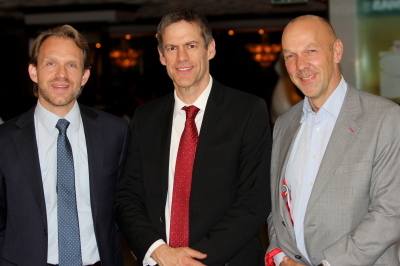“African countries are very different from each other, which means a ‘cookie cutter’ approach won’t cut it for firms that are expanding into the continent,” says Steve Killick, partner at the Johannesburg-office of PwC. “For example the regulations vary greatly from country to country, especially in the financial services sector in which I work. Culture is a softer element, but it’s equally important and the differences are significant.”
Steve is not complaining. Advising multinationals about setting up African operations is bread and butter for consulting firms like PwC. “We have had good years in our advisory business,” he admits. “We have seen 70% growth over the last 4 years. We have now established one PwC Africa firm, which helps us deliver a seamless approach throughout the continent, something that our multi-national clients are asking for.”
Organized into three logical African regions – East, West and South – Our footprint in Africa is unsurpassed – we operate in 30 countries with a staff compliment in excess of 8 000. New business does not only come from expansion into Africa, says Steve. “In South Africa we do a lot of work around financial management turnaround in the public sector. We’re helping improve effectiveness and management processes and we do training too.”
PwC has been assisting provincial government departments improve their financial management. “That is a massive task,” says Steve “We have structured our work so we can work towards a sustainable solution, so that we’re not just offering short-term solutions.”

Steve’s specialty is business services transformation, which in the last decade often goes hand in hand with leaner organizations and shared services centres. “I have put a couple of shared service centres in place,” says Steve when asked if he is proud of any work he has recently done. “As an example, I did one shared services project for a large business in Cape Town, moving finance people from over 52 business units into one hub. This was a transformational project for their finance department.”
At the same time Steve warns that shared services centres are not the solution for everything. They need to come with proper change management and require a good pool of skills. When it comes to skills in particular, Steve says that Africa has a way to go before it can host worldwide shared service centres. “The potential of establishing global shared services in Africa requires thorough investigation as technical infrastructure, language and skills are lacking in some countries.”
Many CFOs need to realize that they need to make a technological leap, because they are expected to present up-to-date and complex information to the boards of their companies, he says. “For example we still see a huge amount of spreadsheets being used in financial reporting.”

“Boards are asking for more and more insight from Finance these days,” says Steve. “Finance wants one version of the truth and they want to be able to drill down into the numbers, which is often impossible if there are various legacy systems in place. Even the firms with ERP systems often use a junior controller to put the information back into a spreadsheet to manipulate it before a presentation. That needs to stop as there are more efficient ways of working.”
In the picture Melle Eijckelhoff (Director CFO South Africa), Steve Killick and Alex van Groningen (Founder CFO South Africa)
If you also would like to share your ideas with the CFO community and you want to be part of the leading CFO South Africa Community, you are most welcome to get in touch with CFO SA. Please contact Jurriën Morsch at [email protected]
Stay connected, up to date and in the loop on what is happening in the world of finance by becoming a member to receive our newsletter and following us on Twitter. Also to keep track of newly published interviews with CFOs and CEOs.








